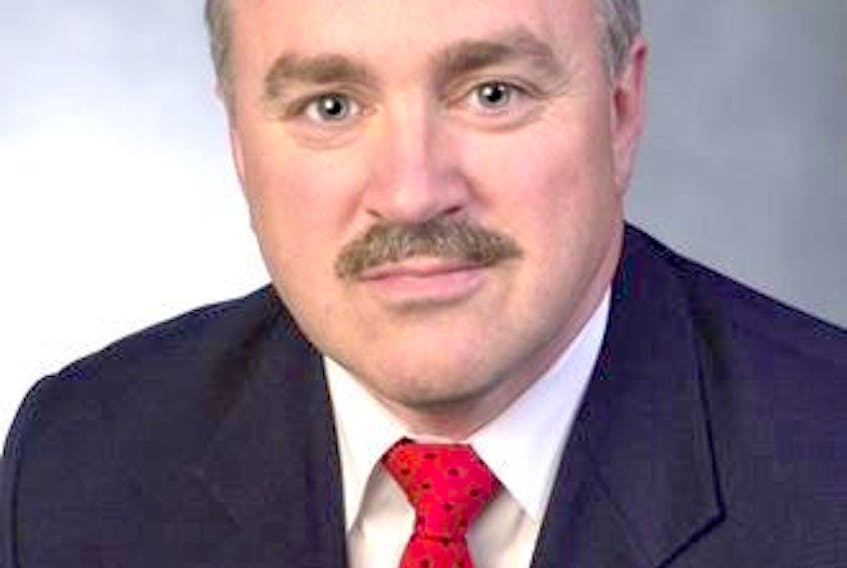Labrador Gem Seafoods hopes to add four new seafoods to its processing operation at the Ramea fish plant. Danny Dumaresque, the company’s CEO and president, says the application to process lobster, sea urchin, sea cucumber and whelk is ready to go.
Dumaresque hopes that by diversifying it will allay fears about the future of the plant, while helping to extend the processing season for workers and perhaps even add a few new jobs.
“Hopefully we’ll get an approval for that application and then we’ll prepare to process these new species as they become available starting next spring,” he said via phone interview.
He cautions that adding these four new species does not mean the Ramea facility will become a year-round operation. Typically, it operates about eight months of the year, from April until November.
“It will certainly help the bottom line in terms of employment for our workforce and of course revenue for our company,” he noted.
When it comes to lobster, Dumaresque says he’s definitely noticed an upswing in the harvest the past few years.
“I think lobster right now, I think there’s somewhere between 50 and 70,000 pounds that are landed there and we’re hoping that that will increase in the future,” he said.
While the idea of processing sea urchins might be new to the Ramea facility, Dumaresque has a solid background to draw on.
“I did a significant study of sea urchins years ago when it comes to the harvesting, processing and marketing of sea urchin roe (uni),” said Dumaresque. “I know there’s a market out there for it, but we have to prepare it properly and there’s a certain time when it’s better than others.”
The same goes for whelk.
“I know there’s a significant decline in the whelk biomass and fish in that area, but you know as I said, we might find a whelk fisherman that might bring us 50 or 100,000 pounds of whelk that we can process in a form that would be compatible with our capacity there,” he explained.
While adding the new species may extend the processing season, the bulk of it will remain on the mainstay scallops.
“The fundamental role of the plant will continue to be the production of wild harvested bay and sea scallops,” clarified Dumaresque. “It will give the fishermen locally a chance to sell it and create employment and revenue in their own community, and it certainly will help us in the marketplace because there are times that I will be able to sell some scallops to them (buyers) if I could offer them maybe a few cases of lobster.
“That’s the kind of thing that we are always being asked for, and having a singular species certainly limits your marketing capacity.”
The trouble with the scallop harvest this past season is one of the primary motivating factors behind the company’s bid to diversify.
“If we had other species there, for example, like I’m offering to do now, while it may not have replaced the same kind of work we do with scallops, it certainly would have helped to create some employment and to help some of the overhead costs that we had whether we have scallops in the plant or not,” Dumaresque said.
Helping the community’s workforce is an important bonus as far as Dumaresque is concerned, who hopes to see somewhere between five to 10 new jobs created, and a couple of months more employment for the current workers.
“More importantly, in my opinion, it will guarantee the productivity in the plant for the period of time that we will be open,” he said. “For example, I can see where we could do sea urchins, for example, in March and April, when that would be a great time for them to produce their best quality roe.
“We could be doing two months of sea urchins before the scallop season even opened, and we could also do that at the end of the processing season, maybe November and December.”
Because sea urchins require divers in order to be harvested in Newfoundland and Labrador, Dumaresque foresees potential employment there too.
“I’m quite familiar with the harvesting technique and the harvesting capacity of divers, and I’m confident that we can find people in this area to be able to come and dive for sea urchins and work with a licensed fisherman in the area to make it work for everybody,” he said.
When it comes to diversification, Dumaresque says the need has arisen from both the marketing side and the productivity side.
“There’s times when I’m not going to be able to get scallops in the future and if there’s a way to fill that space in our freezers or in our cooking capacity in the plant, well then we should be doing that,” he said.
Dumaresque says there is a significant market for lobster and scallops in North America already, but whelk and uni would appeal too. Sea cucumbers would likely hold greater appeal in mainland China, but he won’t be limited by geography.
“For the amount of product that we think we would do, there’s no reason why we wouldn’t be able to have an active trade in the North American market,” he noted.
Despite the scallop setback, Dumaresque has every confidence in next year’s harvest, and is even hoping for an early start now that the vessel’s tank system has been fixed.
“We are not deterred. Yes, we are disappointed in the season, but we are not deterred, and we believe that if we can get the support to add these new species to our license it will enhance the viability of our operation, and our intention is to be in Ramea for a long time to come,” he said.









